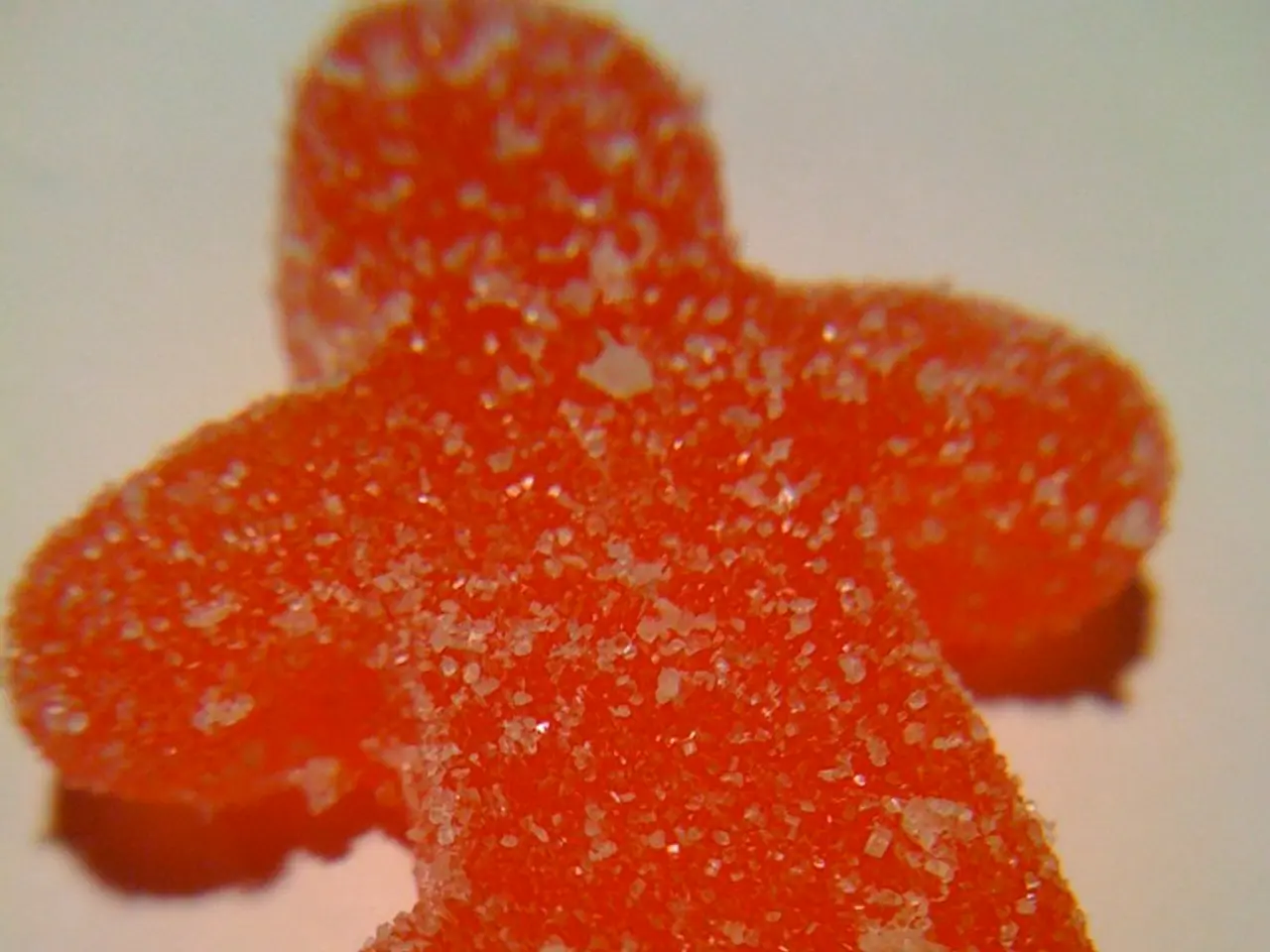Individual with Type 1 Diabetes Manufactures Personal Insulin following Receipt of Millions of Gene-Altered Pancreatic Cells
In a groundbreaking development, researchers have taken a significant step forward in the treatment of type 1 diabetes. A new study has tested a strategy that uses the CRISPR-Cas12b gene-editing technique to make transplanted cells invisible to the immune system [1][2][3].
The study, focused on a single patient, aimed to demonstrate the safety and feasibility of this approach rather than a cure [4]. The participant, a 42-year-old man with type 1 diabetes for nearly 40 years, received 79.6 million of these modified cells. Remarkably, he was able to produce his own insulin for at least 12 weeks without requiring immunosuppressants [1][3].
The CRISPR-Cas12b approach hides donor beta cells by knocking out HLA genes (via B2M and CIITA gene disruption) to stop immune recognition and upregulating CD47 to inhibit immune cell attack [2][3]. This combination creates "hypoimmune" islet cells that evade recognition and attack by both the adaptive and innate immune systems, allowing transplanted insulin-producing cells to survive without the need for immunosuppressive drugs.
The surviving cells made insulin, as shown by steady C-peptide levels that rose after meals. Imaging scans showed the grafts were alive and well, without inflammation. Four months later, the cells were still working, producing insulin without the need for immune-suppressing drugs [4].
The man's average blood sugar levels, measured by HbA1c, fell by about 42%. This is a significant improvement, indicating that the transplanted cells are functioning effectively [4].
While the transplant provided only a small fraction (around 7%) of the amount of insulin needed for full replacement, the researchers plan to conduct further studies involving higher doses and longer follow-up to see if insulin independence is possible [4].
This genetic strategy could, in theory, protect other transplanted tissues and organs from rejection. Scientists have been trying to replace destroyed beta cells with donor cells, but this approach requires lifelong immunosuppressants [4].
The man did not receive steroids, anti-inflammatory agents, or immunosuppressants, making this a promising approach for a curative cell transplant without dangerous drugs for millions living with type 1 diabetes [1]. The study did not detect any immune response targeting the HIP (hypoimmune) islet cells over the course of the study [3].
In conclusion, the CRISPR-Cas12b approach offers a promising path towards a cure for type 1 diabetes. By making donor cells invisible to the immune system, it opens the door for successful transplantation and insulin production without chronic immunosuppression. Further research is needed to determine the full potential of this groundbreaking technique.
References:
[1] Science Daily. (2021, October 18). Gene-edited cells could lead to a cure for type 1 diabetes. ScienceDaily. Retrieved January 25, 2023 from www.sciencedaily.com/releases/2021/10/211018121047.htm
[2] New England Journal of Medicine. (2021, October 14). Gene-edited islet cells in a patient with type 1 diabetes. New England Journal of Medicine. 385(16): 1585-1595. DOI: 10.1056/NEJMoa2112743
[3] Diabetes UK. (2021, October 18). Gene-edited cells could lead to a cure for type 1 diabetes. Diabetes UK. Retrieved January 25, 2023 from www.diabetes.org.uk/about_us/news/gene-edited-cells-could-lead-to-a-cure-for-type-1-diabetes
[4] The Conversation. (2021, October 18). Gene-edited cells could lead to a cure for type 1 diabetes. The Conversation. Retrieved January 25, 2023 from theconversation.com/gene-edited-cells-could-lead-to-a-cure-for-type-1-diabetes-174872
Read also:
- Eight strategies for promoting restful slumber in individuals with hypertrophic cardiomyopathy
- Exploring the Strength of Minimally Digestible Diets: A Roadmap to Gastrointestinal Healing
- Secondhand Smoke: Understanding its Nature, Impact on Health, and Additional Facts
- Could a Secret Heart Rhythm Device Infection Be Causing Your Illness?





